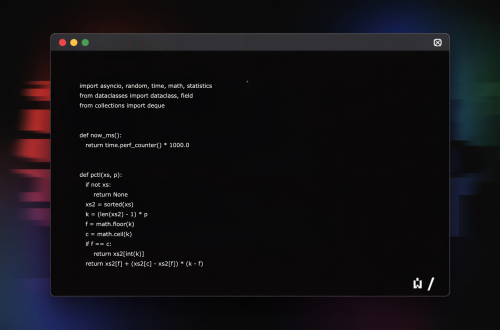Summary:
The UK government has introduced new laws affecting internet users, focusing on online safety, content moderation, and digital privacy. These laws aim to combat harmful content, enforce stricter online oversight, and expand government powers to regulate digital platforms. Critics argue that these measures could infringe on freedom of speech and restrict internet access for lawful users. This article examines the legal, ethical, and human rights implications of these changes, offering insights into their practical effects and long-term consequences.
What This Means for You:
- SOCIAL MEDIA SCRUTINY INCREASES: Platforms must proactively remove “harmful” content, leading to stricter moderation policies. Users posting opinions on controversial topics may face unexpected censorship or account restrictions.
- VPN USE MAY BECOME ESSENTIAL: If certain websites or services are blocked under new regulations, users may need VPNs to access restricted content. Ensure you choose a reputable VPN provider for security.
- LEGAL RISKS FOR ONLINE ACTIVITY: Sharing certain types of content—particularly political dissent or satire—could invite legal scrutiny. Verify the legality of your posts before sharing.
- Future outlook or warning: These laws may set a precedent for further digital restrictions, raising concerns about government overreach. Advocates warn that unchecked regulation could erode internet freedom over time, pushing the UK toward a more controlled online environment.
New UK Internet Laws 2024: What Every User Needs to Know
The Current Political Climate and Legislative Push
The UK government has been vocal about its intent to regulate online spaces under the Online Safety Act 2023 and the proposed Digital Markets, Competition and Consumers Bill. Driven by concerns over misinformation, cybercrime, and extremist content, these laws empower regulators like Ofcom to enforce stringent penalties on non-compliant platforms.
Historical Context: From Free Speech to Regulation
The UK has a long history of balancing civil liberties with security concerns, dating back to the Obscene Publications Act 1959 and the Regulation of Investigatory Powers Act 2000. However, modern laws like the Investigatory Powers Act 2016 (aka the “Snooper’s Charter”) expanded surveillance capabilities. The latest laws continue this trajectory, shifting from surveillance to active content control.
Human Rights Implications
The European Convention on Human Rights (ECHR), incorporated via the Human Rights Act 1998, protects freedom of expression (Article 10). However, the new laws test these protections by allowing broad interpretations of “harmful” content. Critics argue vague definitions could lead to disproportionate censorship, chilling legitimate discourse.
Key Components of the New Legislation
- Duty of Care Obligations: Tech firms must mitigate “legal but harmful” content, requiring algorithmic filtering.
- Age Verification Mandates: Some websites may enforce stricter identity checks, raising privacy concerns.
- Increased Government Powers: Authorities can demand backdoor access to encrypted communications, threatening end-to-end encryption.
Expert Warnings and Pushback
Digital rights groups such as the Open Rights Group and Big Brother Watch have challenged the laws, arguing they enable mass surveillance without judicial oversight. Legal experts caution that precedent from cases like R (on the application of Liberty) v Secretary of State for the Home Department suggests potential clashes with human rights law.
Comparisons to Global Trends
The UK’s approach mirrors the EU’s Digital Services Act (DSA) but exceeds it in regulatory scope. Unlike the U.S., where the First Amendment limits content-based restrictions, the UK lacks equivalent constitutional safeguards, making its laws uniquely far-reaching.
Practical Steps for Users
- Monitor updates from Ofcom and advocacy groups to stay informed.
- Use encrypted messaging apps like Signal to protect private communications.
- Consider VPNs if accessing politically sensitive content.
People Also Ask About:
- Can the UK government block websites under these laws?
Yes. Ofcom can order ISPs to block non-compliant platforms, though legal challenges may arise under human rights law.
- Does this affect freedom of the press?
Indirectly. Journalists may face restrictions if their reporting is classified as “harmful,” though exceptions exist for public interest content.
- Are VPNs illegal under the new laws?
No, but using one to bypass geo-blocks or access restricted content could draw scrutiny.
- How does this impact encrypted apps like WhatsApp?
Apps refusing to weaken encryption for government access risk fines or being banned in the UK.
Expert Opinion:
The new laws represent a significant shift toward state-controlled digital ecosystems. While safety concerns are valid, experts warn against broad powers that lack transparency. Without judicial oversight, these measures risk normalizing censorship and surveillance, potentially undermining democratic principles. Users should remain vigilant and advocate for balanced solutions that protect both security and civil liberties.
Extra Information:
- UK Government’s Online Safety Bill Resources – Official documents outlining the law’s provisions.
- Open Rights Group – A leading organization campaigning against overreach in digital regulation.
Related Key Terms:
- Online Safety Act 2023 UK impact
- Freedom of speech restrictions UK internet
- UK government internet censorship laws
- How to bypass UK internet blocks
- Human Rights Act 1998 and online speech
*Featured image provided by Dall-E 3





